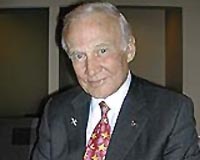 |
Sydney, Australia (SPX) Jul 23, 2009 Volunteers from the Mars Society Australia's Sydney chapter have been selected to support this year's Flashline Mars Arctic Research Station (FMARS) expedition by running the Pacific-based Mission Support Centre. FMARS is an annual research expedition conducted at a research station located at Devon Island near the North Pole. The peer reviewed research conducted at Devon Island, a Mars-like 'analogue' environment, is geared towards learning how humans will live and work on Mars, and has been visited by scientists and engineers from around the world since it was first constructed in 2000. Australia's contribution to this expedition follows in the tradition of assisting international space-related projects and makes this valuable research possible. The 2009 FMARS expedition, which started on July 2, is led by Commander and Chief Geologist Vernon Kramer of Del Mar College (Corpus Christi, TX), a seasoned mining engineer who has conducted exploration and mining development for multinational corporations in 42 states and 18 different countries. Vernon will be leading a highly skilled team of scientists and engineers. This will include Executive Officer and Engineer Joseph Palaia of the 4Frontiers Corporation (New Port Richey, FL), EVA Lead and Geologist Stacy Cusack of NASA JSC (Houston, TX), Interdisciplinary Scientist Kristine Ferrone of NASA JSC (Houston, TX), Chief Geophysicist Brian Shiro of NOAA (Ewa Beach, HI), and Chief Medical Officer Christy Garvin of Vaughan Elementary School (Powder Springs, GA). In order to help develop key knowledge needed to prepare for human Mars exploration, and to inspire the public by making real the vision of human exploration of Mars, the Mars Society maintains multiple habitats or stations such as FMARS around the world, where simulation missions can take place in conditions as similar as possible to actual Mars missions. All of the information gained will help the efforts to send humans to Mars, which may take place around 2030 based on current plans that have been announced by NASA and the European Space Agency. This year Australians are for the first time providing direct support to the expedition. The group responded to a call for volunteers for mission support personnel in Denver Colorado, USA. Although this is the first time the US Mission Support team received volunteers from so far away, they enthusiastically agreed to the idea. The use of an Australian team simulates the real world scenario of radio silence from North America due to the Earth's rotation. As the FMARS program is simulating real life conditions of a Mars colony, this means that the Australian team is playing a significant role in the program. The Australian support team consists of an eclectic mix ranging from undergraduate scientists from the University of Sydney to professional engineers. They assist the FMARS crew daily with terrestrial and space weather forecasts, troubleshooting engineering and communications problems, and ensuring the FMARS crew is well looked after while the American team is offline. "Australia was a critical mission control centre during the Apollo Moon missions, and it will be equally important for a trip to Mars," states the Australian Mission Support team leader Dr. Jason Held. "There are also real-world dangers with any expedition to the high Canadian Arctic. This dedicated Australian support team serves to ease some of the normal burden felt by our American friends, while giving Aussies some valuable operations experience." The Australian team will be helping the field team throughout the three-week simulation. "We are just so proud to adding to the shining history of Australian input in space exploration," says team member Joseph Callingham. Share This Article With Planet Earth
Related Links FMARS Mars News and Information at MarsDaily.com Lunar Dreams and more
 Set sights on Mars, moon pioneers urge
Set sights on Mars, moon pioneers urgeWashington (AFP) July 20, 2009 As the world marked the 40th anniversary of the first lunar landing Monday, astronauts urged Americans to take inspiration from the Apollo program and go back to the moon and beyond, to Mars. "We need to go back to the moon," Eugene Cernan, who was the last man to walk on the moon as part of the Apollo 17 mission in 1972, told a news conference held with half a dozen other astronauts from ... read more |
|
| The content herein, unless otherwise known to be public domain, are Copyright 1995-2009 - SpaceDaily. AFP and UPI Wire Stories are copyright Agence France-Presse and United Press International. ESA Portal Reports are copyright European Space Agency. All NASA sourced material is public domain. Additional copyrights may apply in whole or part to other bona fide parties. Advertising does not imply endorsement,agreement or approval of any opinions, statements or information provided by SpaceDaily on any Web page published or hosted by SpaceDaily. Privacy Statement |